
SEASON 8 (1936-37)
The Birds
The Shepherd's Play & Everyman
The Jealous Wife
November 1936
THE BIRDS
by Aristophanes
translated by W H Frere
Directed and Designed by Alfred Emmet
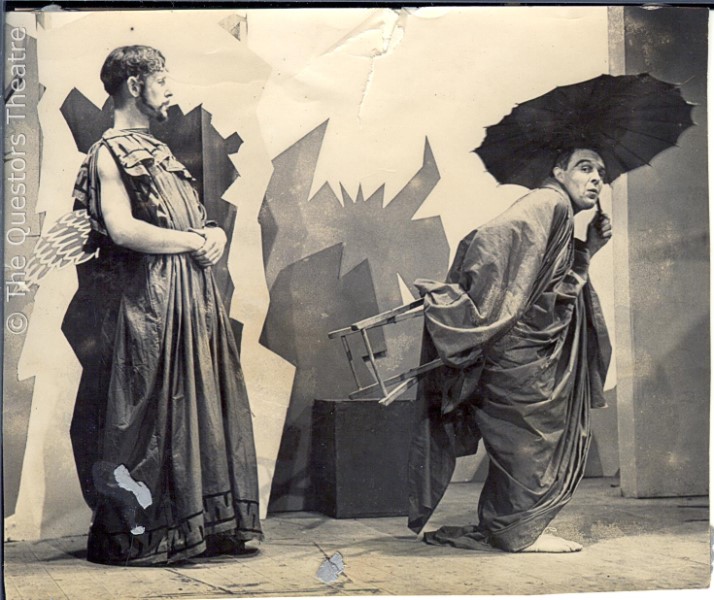
For the first time, the Questors were presenting two complete seasons on a single theme, illustrating the history of drama. The cycle, combining full productions and play readings, started with Aristophanes' THE BIRDS and finished in 1938 with an experimental play, A BRIDE FOR THE UNICORN.
In his programme note to THE BIRDS Alfred Emmet explained that the themed seasons were "designed to give a "bird's eye view" of the history of the Drama from earliest times up to the present day. Of this scheme the present production is the first step... Our first purpose is and must be not merely academic, but to provide you with intelligent entertainment, and that has always been at the forefront of our mind in designing this production."
The production was hailed as a brave experiment, "admirably conceived and executed" and "acted with great heartiness" - an object lesson for other amateur companies on how to produce classical comedy.
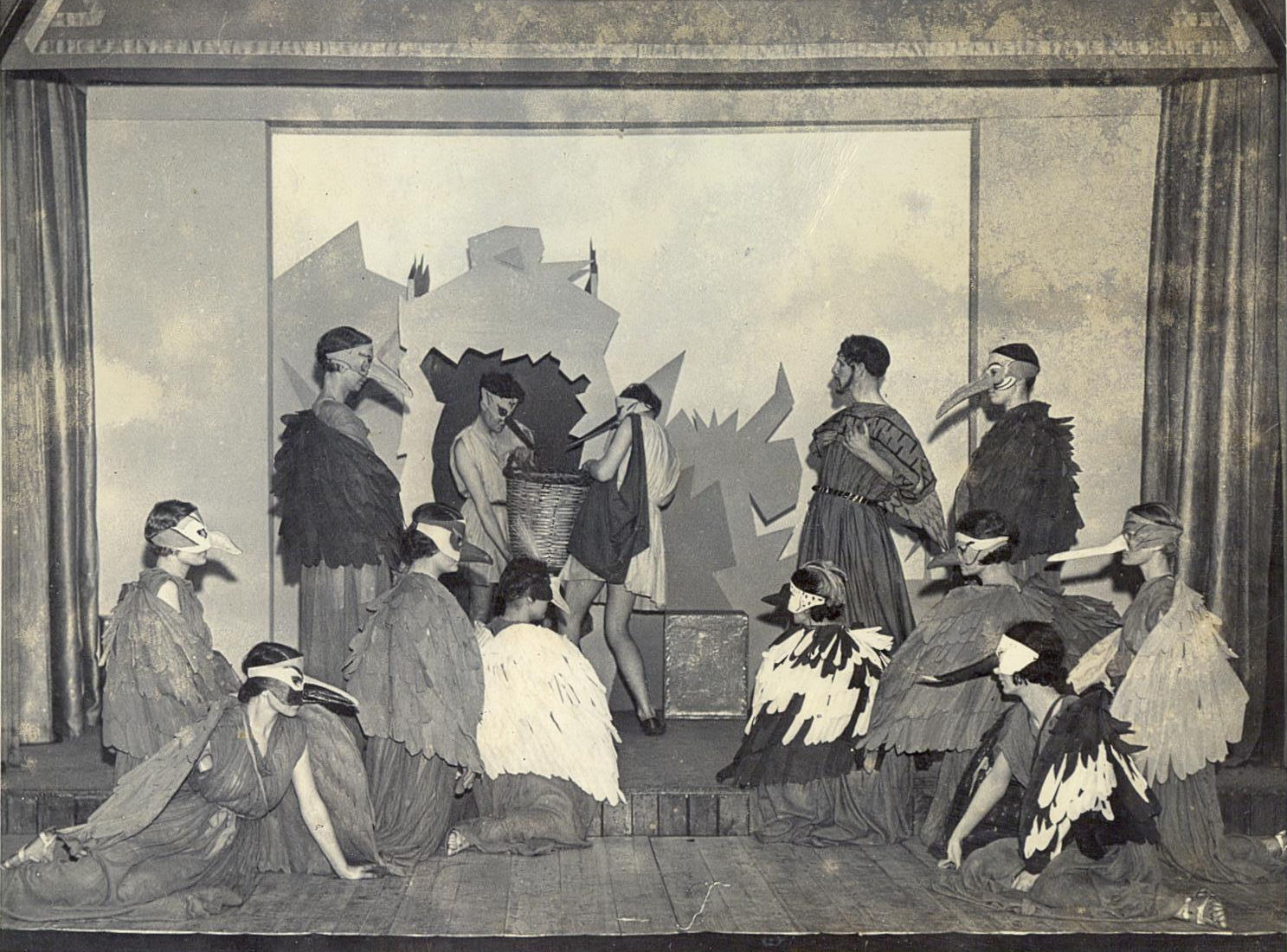
The challenge of adapting the proscenium stage to create the atmosphere of an arena was met by a forestage at a lower level to the main stage, establishing an intimacy between chorus and audience.
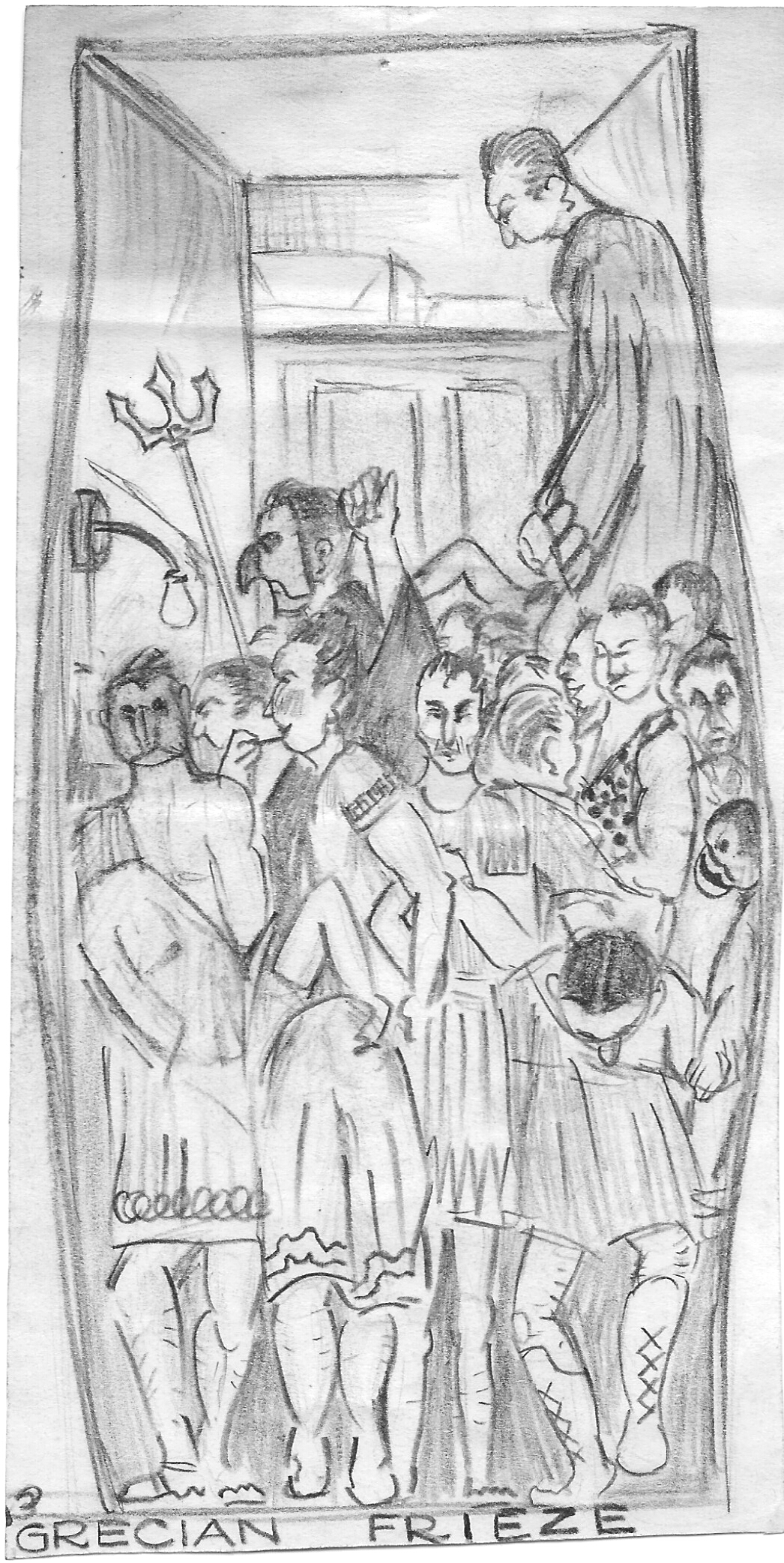
Alfred Emmet had hinted at difficulties getting this production on stage, and indeed there was some evidence that the chorus could have done with more rehearsal time for their singing parts. But with 19 actors playing 26 roles the logistics of the tiny space back stage must have been extremely trying - as hinted at in this cartoon drawn by a member of the company.
December 1936
THE SHEPHERD'S PLAY
from the Wakefield Cycle of Miracle Plays
& EVERYMAN
The Play of the Rich Man's Death
Directed by Rosalie van der Gucht
& Ifan Kyrle Fletcher
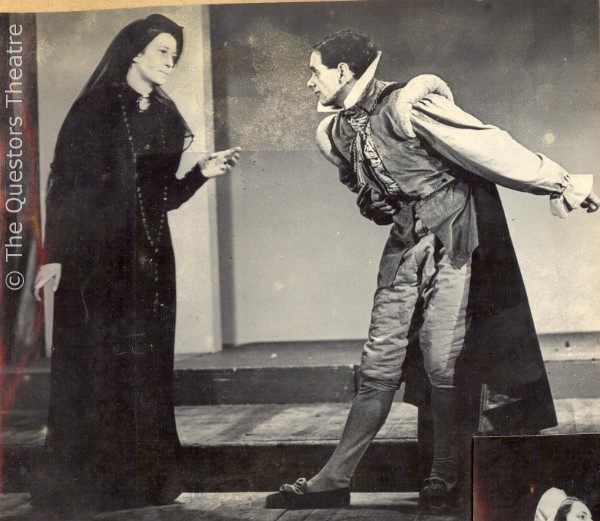
In "a flying leap of over 1,800 years" from "the sophistication of the Athenian comedy of Aristophanes to the simplicity of fifteenth century drama", the Questors' exploration of the History of Drama continued with a double bill:
THE SECOND SHEPHERD'S PLAY from the Wakefield Cycle of Miracle Plays and an English translation of Hugo von Hofmannsthal's "JEDERMAN" (in its turn a German version, of the original English morality play, "EVERYMAN")
Unfortunately we have no photos of the SHEPHERD'S PLAY in archives, but according to a press review:
"No labour had been spared to reproduce...the atmosphere of mediæval England, and to present on the most modern stage in Ealing as nearly as possible what the townsfolk of Wakefield saw and laughed at on feast days in the fifteenth century."
The "acting was honest and arduous, and the cast did their best with these medieval characters", but it was a pity that the robust Yorkshire humour had to be spoken in the "rather emasculated accents of the southern counties".
THE SHEPHERD'S PLAY was no mean failure, but was upstaged by the blaze and colour of EVERYMAN.
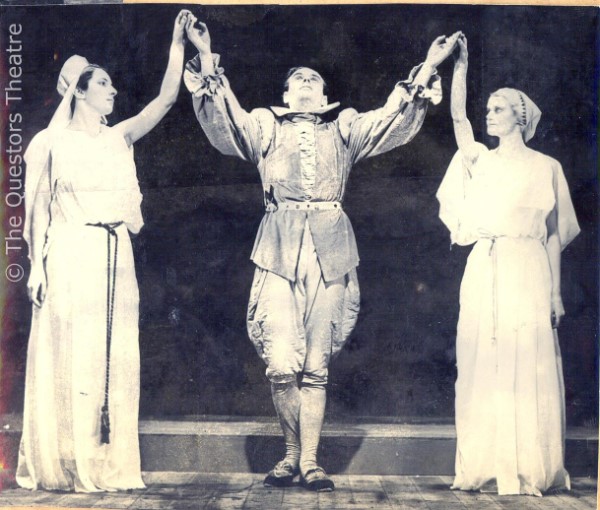 Three performances were given special accolades by one reviewer
Three performances were given special accolades by one reviewer
"Mr. Alfred Emmet's Everyman will linger in the memory as the best acted amateur role I have ever seen, well-balanced, majestically uttered, excellently-borne, exceedingly well acted piece of work."
Mr. T. S. Saunders was superb in the part of Death. His make-up "struck a chill to the spine", and his acting had "a graveyard caress about it and his lines were spoken with a horrible relish".
Mr Benjamin Vynreb gave a nerve-tingling performance as Mammon with a "raucous voice and slobbering bestial mien. He sprang out of Everyman's treasure-chest with a waving of his arms and a grin that millionaires would envy. His voice had in it the din of mammon and all that riches stand for."
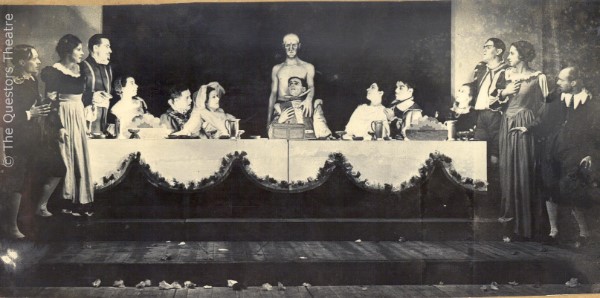
"The Questors again deserve our thanks for presenting two plays we will be lucky to see again during our lifetime. Few amateurs have The Questors' boldness; that is a pity."
April 1937
THE JEALOUS WIFE
by George Colman
Directed by Alfred Emmet
Designed by Fred Robinson
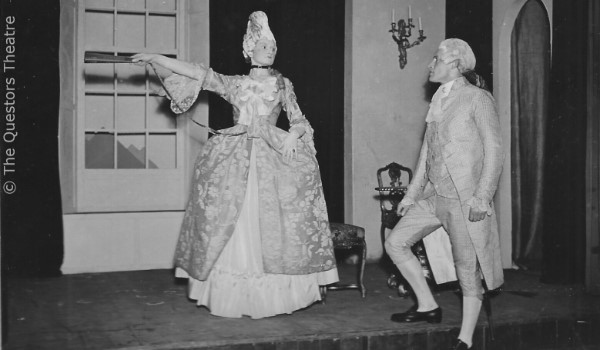
The Questors was congratulated in the press for choosing such an out of the way 18 century play for the third full production in their History of Drama season.
Peter Quince (West Middlesex Gazette) said "It needed bold courage to leave out all the golden era of Elizabethan drama and the brilliantly witty Restoration Period." But This was to overlook the fact that since EVERYMAN, a series of play readings had included EDWARD II (Marlowe), A NEW WAY TO PAY OLD DEBTS (Massinger) and THE BEAUX' STRATAGEM (Farquhar).
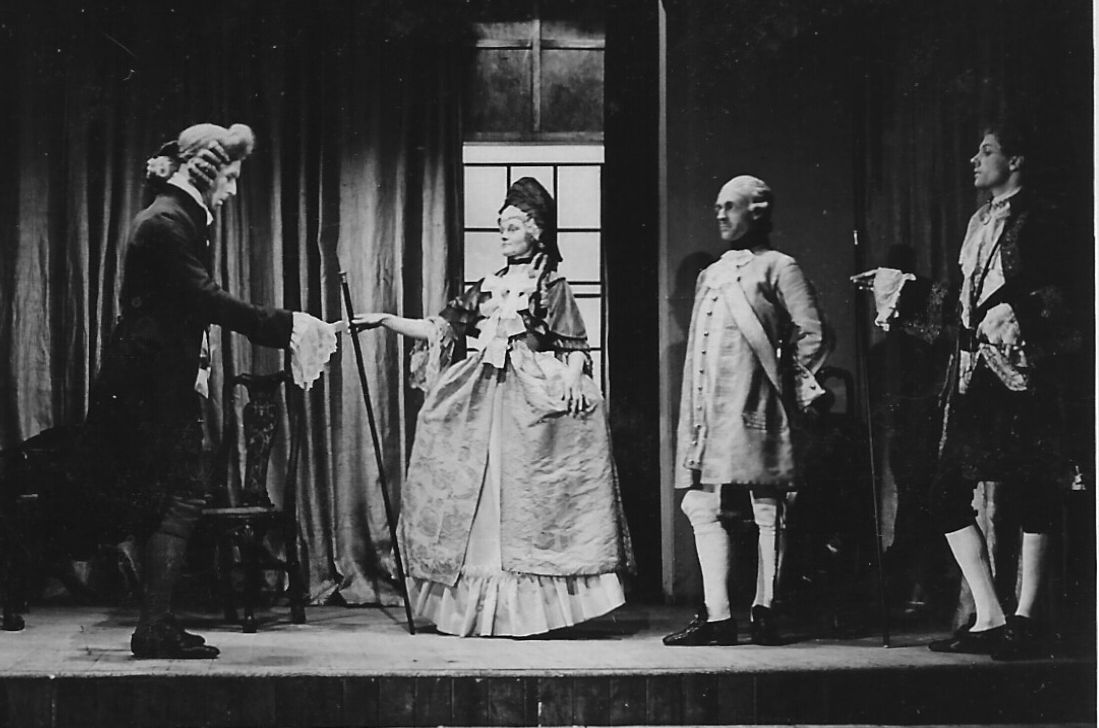
He was also less than enthusiastic about the play itself. "Although it is good to record our thanks for the production of this comedy, yet the truth must be stated that in many ways this was the least successful of The Questors plays this season. The fault is in the play. Characterisation and stage situations in THE JEALOUS WIFE reveal that this is but a second class play, and however good The Questors may be, they are not proficient enough to prevent poor material from being made aware to the audience."
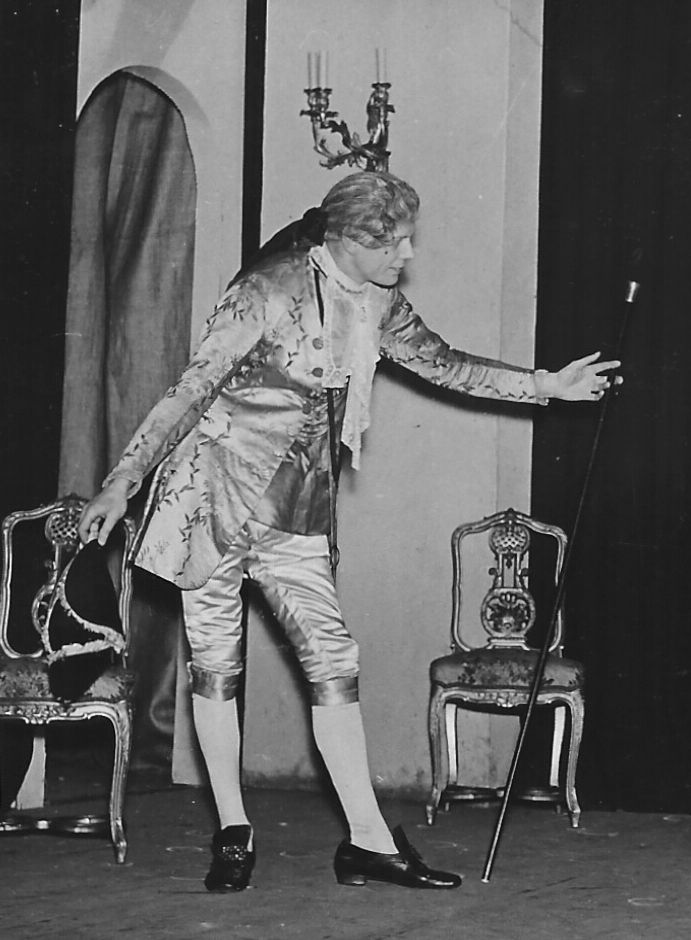 C C in the Middlesex County Times, on the other hand, praised the cast for embracing the "period" aspects of the production.
C C in the Middlesex County Times, on the other hand, praised the cast for embracing the "period" aspects of the production.
"It is not enough to wear an eighteenth century outfit with aplomb, as if the player had been always used to lace frills and plush coats or brocaded pannier skirts, wigs and canes. There is the temperament, opinions and behaviour that go with such clothes, and it was because, without exception, these were forthcoming that the play came over so well and was enjoyed on both sides of the footlights."
At this time, before there was a printed newsletter, it was common for audience members to submit hand written reviews, some of which are quite charming:
"perhaps some of the men's breeches did not fit quite so well as they should have done"
"Oakley confined himself to three main movements and their likeness to physical jerks was so pronounced that mentally one was anticipating which the next would be."
I expect Alfred enjoyed reading these out to the cast at the post production discussion.





 Three performances were given special accolades by one reviewer
Three performances were given special accolades by one reviewer


 C C in the Middlesex County Times, on the other hand, praised the cast for embracing the "period" aspects of the production.
C C in the Middlesex County Times, on the other hand, praised the cast for embracing the "period" aspects of the production.